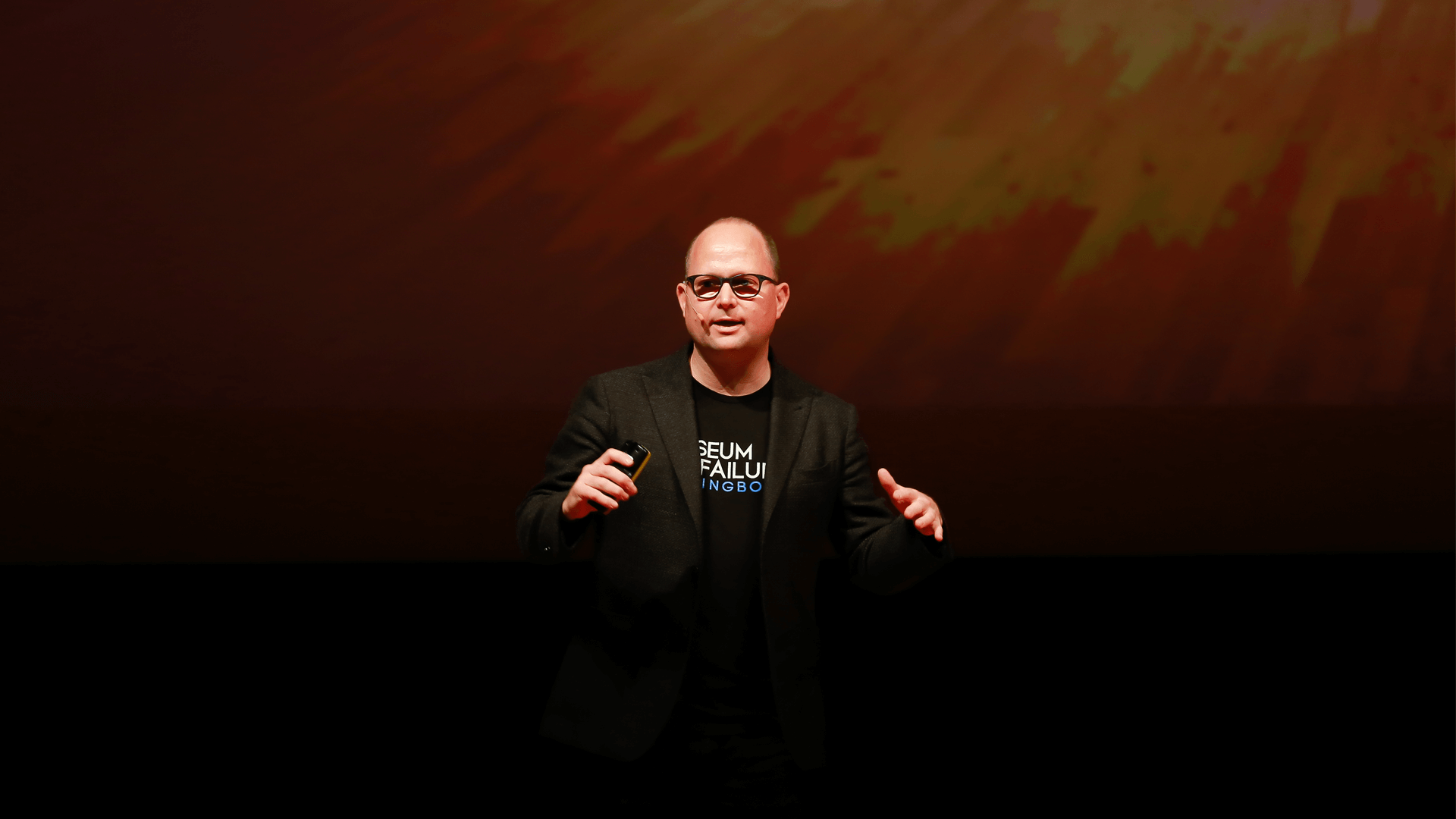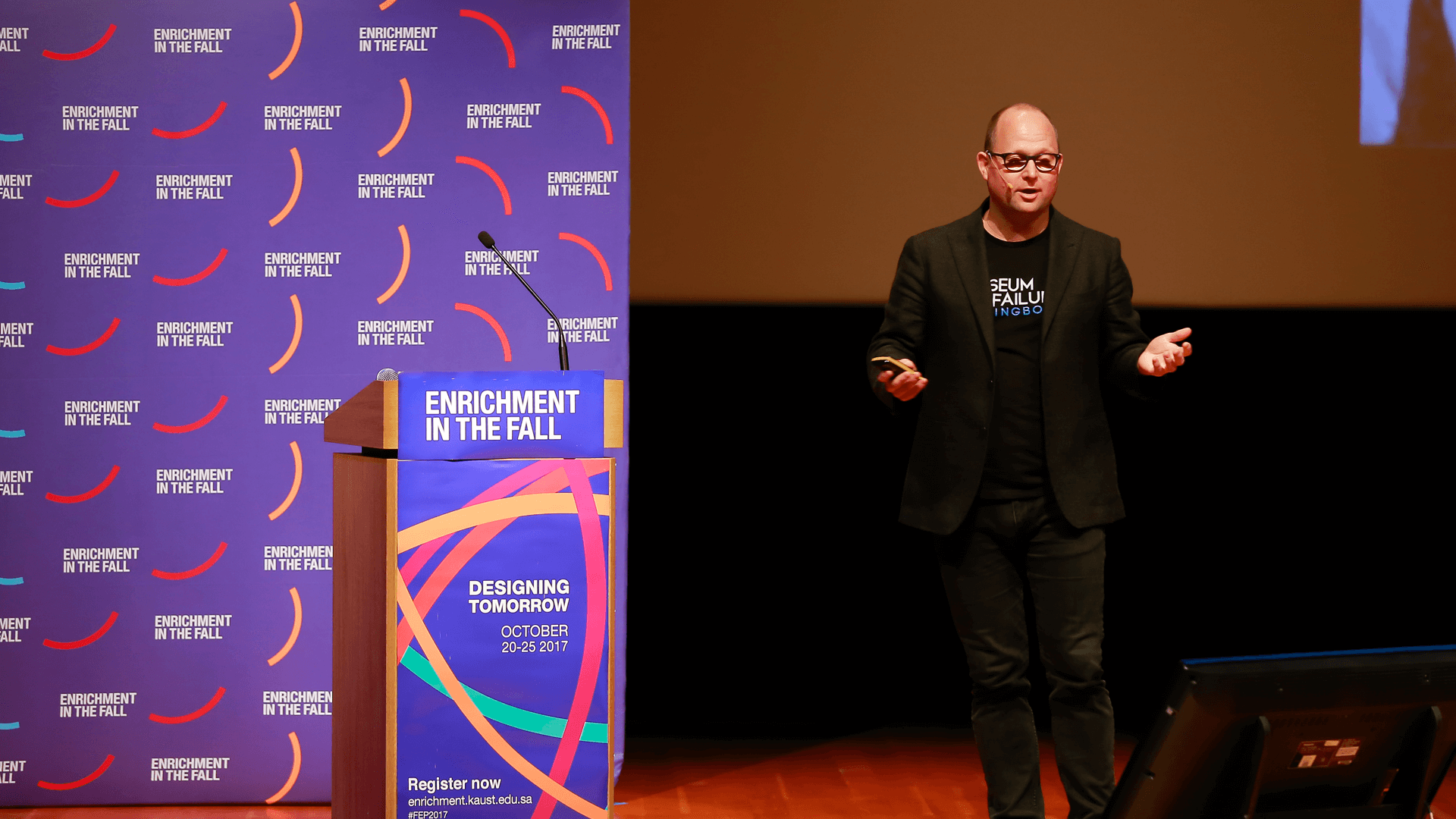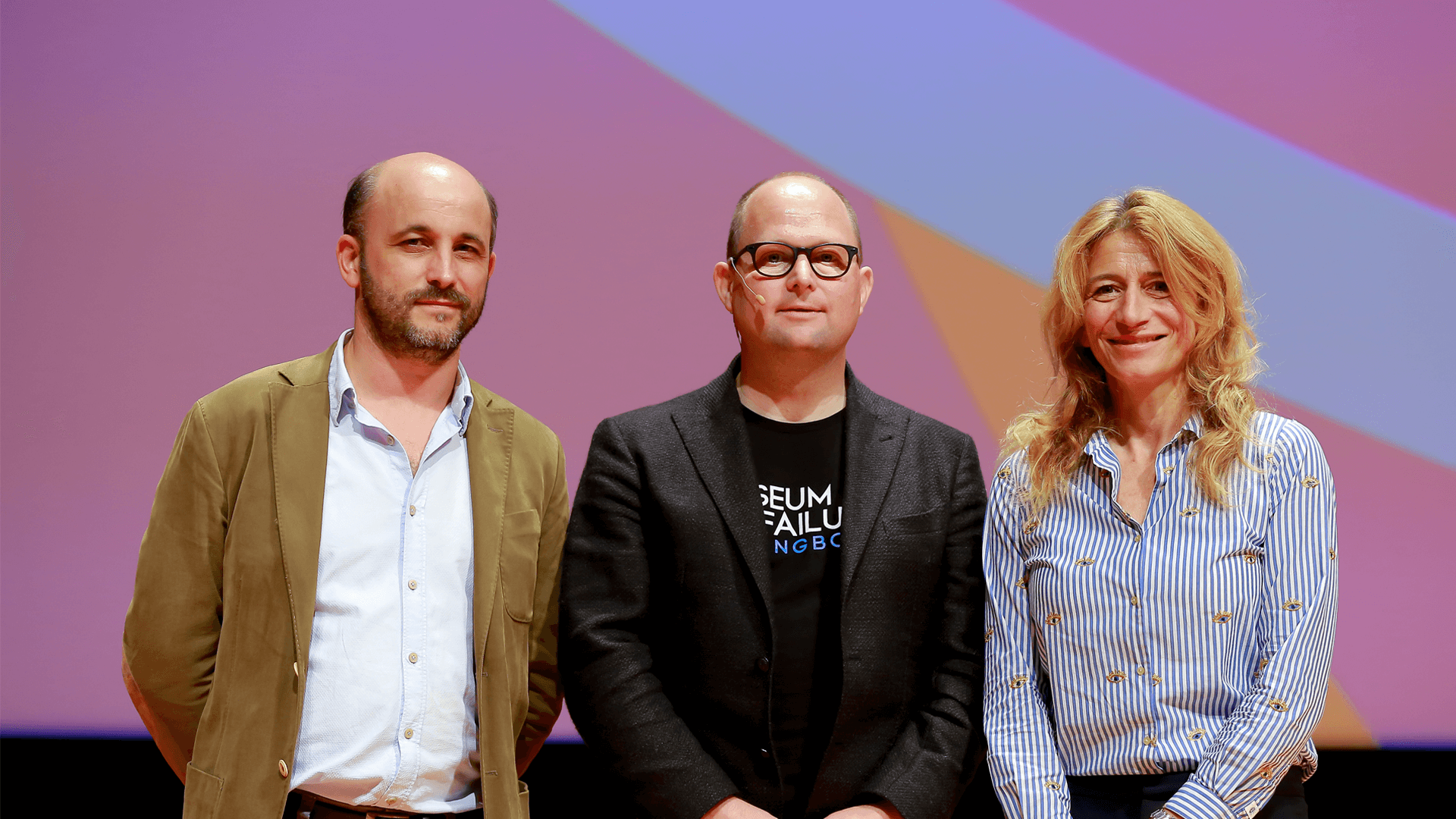Turning failure into success

Dr. Samuel West, curator at the Museum of Failure, explored how we can learn from innovation failure during his recent Enrichment in the Fall keynote lecture. Photo by Asharaf Kannearil.
On October 24, Dr. Samuel West, curator at the Museum of Failure in Helsingborg, Sweden, delivered an engaging Enrichment in the Fall keynote lecture on learning from failure. In his keynote, "Learning from Innovation Failure," West, a licensed clinical psychologist, covered an array of case studies, innovations, inventions and long-forgotten products.
Creating a criticism ‘buffer’
Throughout his address, West reinforced how people should not fear failure, but accept and learn from it. He repeatedly stated the need for a scope of expression in the workplace and a sense of playfulness.
"The principles of playfulness and accepting the fear of failure are just some of the guiding themes for the Museum of Failure. You should only accept failure if the person is sloppy, or just doesn't care. You should encourage innovations and ideas—not punish them. We must frame work as learning problems, as opposed to execution of problems," West said.

"A team that has fun together have a 'buffer' to criticism. They will support each other in the face of criticism. There won't be a sense of fear involved. If there's a reluctance to talk about failure in organisations—then there's not going to be a lot of progress [made]," he added. "We must avoid a 'cockpit culture.' We must learn that it's okay to ask questions and to question. We can't let prestige get in the way of correct judgments."
Learning from failure
The KAUST community members in attendance found great amusement in the affable West's retelling of past failures such as TwitterPeek, the pricy mobile device aimed at Twitter users who didn't own a smartphone. The TwitterPeek, according to West, was doomed to fail given that its sole focus was on Twitter while providing none of the additional functionality commonly associated with modern mobile devices.
Back in Sweden the Museum of failure provides an engaging learning experience for museum visitors by showcasing many of the innovation failures West spoke about in his lecture. In total, the museum hosts over 80 failed products and services from around the world. Some of these products were featured in greater detail in West's talk, such as the Segway; the Itera Plastic Bicycle; the Nintendo Virtual Boy; Trump: The Game, Blockbuster LLC; a pulmonary insulin delivery system named The Exubera; Bofors toothpaste; and Sweden's most famous capsized warship, the Vasa.
West pointed out that although the events surrounding the creation and eventual capsizing of the Vasa were rooted in the 17th century, we can still learn from the shortsightedness behind its failure.
"The Vasa ship was almost 400 years ago, but it's still a good example of how you shouldn't launch a product until you are sure of your innovation," he noted.
West also covered products that were initially deemed failures, but ended up providing the inspiration and launchpad for future successful discoveries and innovations, such as 1993's Apple Newton. Although extremely innovative for its time, the personal digital assistant suffered thanks to its high price tag and faulty character and handwriting recognition problems. The product did, however, lead to many of the technologies that led to Apple's creation of the iconic iPhone and iPad devices.
Dealing with failure and the 'glorification narrative'
West detailed how in certain parts of the world and the different cultures within it react differently to failure or a perceived lack of success.
"In European or Swedish culture, if you fail, you and those close to you will feel temporary embarrassment, but it passes. However, visitors to our museum have told me that in some African cultures failure can carry more of a stigma that can even be passed down through generations. Your name alone can tie you to past family failures," West pointed out.
He concluded his address by drawing attention to the intrinsic link between learning from mistakes and success. West also reiterated modern society's obsession with success, the fixation with being seen as successful, and the overall "glorification narrative."

(L-R) Enrichment in the Fall Chair Professor Gilles Lubineau, Dr. Samuel West and Marie-Laurie Boulot, Manager, Enrichment Programs. Photo by Asharaf Kannearil.
"Success is not a very good teacher. Just because you read about success, doesn't mean you're going to become successful. Learning is the only way to turn failure into success. It's easy to claim that you're a success but it's harder to admit to messing up. At any stage in the innovation process there is a great risk of failure," he emphasized.
"There is an obsession with the glorification narrative—our society worships success. We are hypocrites about failure, we find failure still extremely embarrassing and a lot of organizations punish failure. It's paradoxical. Be innovative but don't fail. Where is the space for failure there? One of the surest times to fail is when you are overhyped. We need to create a society that accepts failure, and the willingness to deal with it," West concluded.
By David Murphy, KAUST News.

